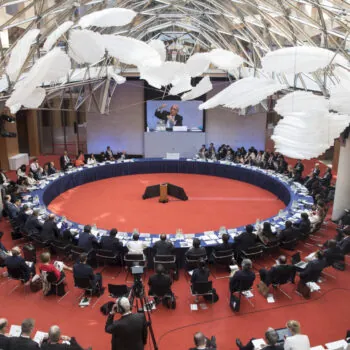Carbon capture and storage (CCS) refers to a range of technologies that can be deployed to prevent the release of carbon dioxide into the atmosphere. It can be used on industrial emissions sources as diverse as steel, cement and refineries as well as from power stations using fossil fuels or biomass to generate electricity. For many industrial sectors it may be the only technologically available option that would enable deep reductions in carbon dioxide emissions. In the power sector, it can help policy makers to address energy security concerns while meeting decarbonisation objectives. In the future, CCS combined with biomass or air capture may provide a means of removing CO2 emissions from the atmosphere.
E3G has had a long-standing and proactive role in shaping the development of CCS policy in the UK, Europe and China. In 2005 we helped catalyse the EU-China and UK-China agreements to create the NZEC initiative (Near Zero Emission Coal). In 2008-09 we then helped convene and lead the cross-sector coalition which secured the creation of the NER300 funding mechanism as part of the EU’s 2020 climate package. In both the UK and Europe we have made the case for a combination of financial support and regulatory drivers to be put in place to pull through CCS into deployment. This has included ongoing support for Emissions Performance Standards (EPS) as a means of avoiding lock-in to high carbon infrastructure and shaping the way for disinvestment from ageing power plants.
Our approach to CCS is founded on our understanding of its political importance as a critical part of the climate solutions portfolio. The practical availability of CCS offers a means of unlocking political barriers to action on climate change in key countries, including by enabling an equitable transition for essential industrial sectors. In our view, CCS is neither a silver bullet nor an excuse for continued fossil fuel extraction. It instead forces a more immediate consideration of the risks and costs of climate (in)action, including the challenges of stranded assets, high carbon lock-in, technology diffusion and the need for new business models. We work closely with like minded NGOs to pursue domestic and international policies, regulations and initiatives that enable CCS to deliver on its emissions reduction potential safely and effectively.


